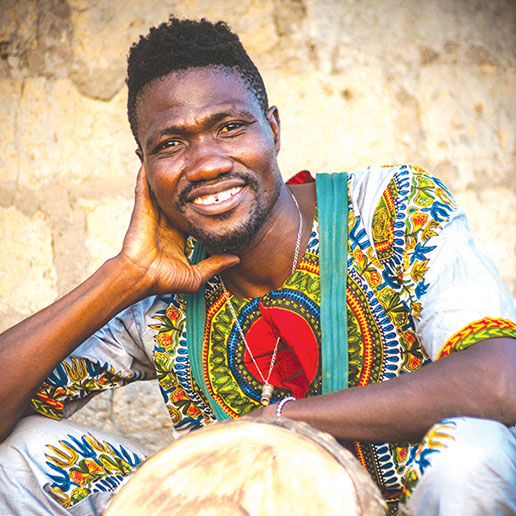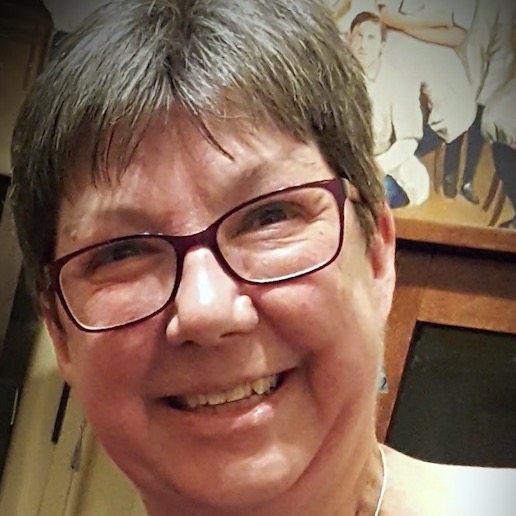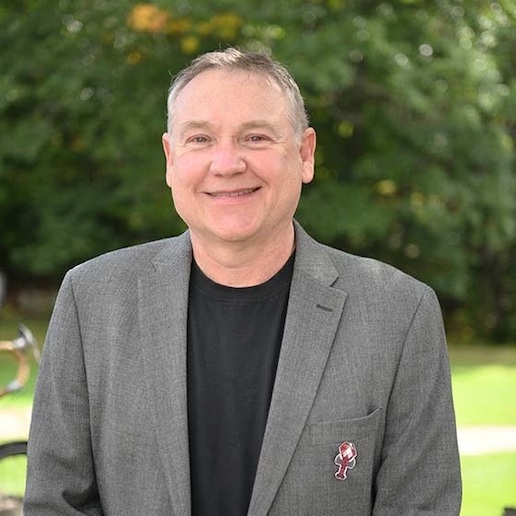Master Drummer of Sangbarala, Guinea, West Africa
he/him
Namory Keita, Master Drummer, is a sought after teacher and performer with a unique style and a wealth of traditional knowledge very rare to find outside the villages of Guinea. His resources include not only his wonderful ability to engage any audience but also his relationships with dancers and drummers locally and around the world.

Talks
Drums of West Africa
Namory's presentation builds bridges of understanding and acceptance through engaging audiences in the musical art forms of the Humana region, West Africa.
George Lincoln Skolfield, Jr. Professor of Religion, Bowdoin College
he/him
Robert Morrison is George Lincoln Skolfield, Jr. Professor of Religion at Bowdoin College in the United States. A scholar of science in Islamic societies and Jewish cultures, he is currently finishing a book on cultural exchange in the Eastern Mediterranean. His teaching includes courses on astrology, Islam, Judaism, science and religion, and religion and the environment.

Talks
Decolonizing Nature in Afrofuturism
Nature often seems to be a good thing. Mother nature deserves our respect and natural foods are better than processed foods. Nature can often be a refuge from the crazy world around us. Yet ‘nature’ is not a neutral or universal term.
In the New Testament, homosexual sex is condemned as contrary to nature. In the United States, the history of the national parks is far from pristine. This talk focuses on the Afrofuturist film Space is the Place as a source for an alternative refuge, space, and Octavia Butler’s alternative, challenging presentation of the non-human world in Parable of the Sower.
This talk is made possible in part by the National Endowment for the Humanities (NEH). Any views, findings, conclusions, or recommendations expressed in this presentation do not necessarily represent those of the NEH.
Religion and Nature in Parable of the Sower
In Octavia E. Butler's Parable of the Sower, natured is portrayed as being harsh. While day still follows night and food sometimes comes forth from the ground, precipitation is unpredictable and animals are even more emboldened to attack humans.
This talk explores how a breakdown of natural order coincides with a breakdown of human society and a re-evaluation of morality. We will also investigate how Butler’s protagonist, Lauren Olamina, theorizes a new God for the dystopian world she lives in. Her challenging ideas empower her and her younger, previously marginalized companions.
This talk is made possible in part by the National Endowment for the Humanities (NEH). Any views, findings, conclusions, or recommendations expressed in this presentation do not necessarily represent those of the NEH.
Professor of History, University of New England
she/her
Elizabeth DeWolfe is Professor of History at the University of New England where she teaches courses in women’s history, archival research, and American culture. Dr. DeWolfe is a historical detective: she hunts archives for the traces of ordinary women, piecing together their all-but-forgotten lives from faint clues.
Dr. DeWolfe’s book on the short life and tragic death of a textile mill girl, The Murder of Mary Bean, was named the Outstanding Book of 2008 by the New England Historical Association. She has also written on textile factory workers, the Shakers, and a Maine stenographer turned undercover detective.

Talks
The Great Turn-Out of 1841: Maine Textile Workers on Strike!
In 1841, nearly 500 female factory workers walked out of Saco’s York Manufacturing Company and paraded up Main Street, chanting and singing. They gathered in a local church, formed a committee, and sent the factory owner a document articulating their complaints about wages, housing, and paternalistic rules. In this illustrated talk, we’ll explore the life of New England “factory girls,” the opportunities mill work brought, and the challenges of this difficult labor. We’ll examine the tense days that followed the “turn-out” and see how a strike in one Maine town connected to national agitation for women’s rights, including suffrage.
Dangerous Temptations: Textile ‘Factory Girls’ in Fact and Fiction
The 1849 "murder" of textile worker Berengera Caswell shattered the tranquility of life in Saco and Biddeford. In the wake of her death, authors published over a dozen tales set in Maine factory towns. To protect Maine's young, female workforce throughout the state, short stories and novellas reviewed the "dangerous temptations" young people found in Maine's cities, and offered advice on how to avoid Caswell's tragic fate. These sensationalized, gothic stories were eagerly read cautionary tales that offered young women (and their nervous parents) guideposts to safety. But did the factory girls take the advice?
Mourning Maine's Dead : Victorian Hair Jewelry and Crafts
In 19th-century Maine, death was ever present. To grapple with loss, Victorian Mainers could turn to art and craft to mourn and remember their loved ones. Their material of choice was human hair. Mary Baker made a good living crafting flowers, wreaths, and jewelry from human hair. Her Portland home-based business tapped into a national craze for Victorian hair jewelry which not only memorialized the dead, but also connected the living. From snips of a loved one's hair in a locket, to braided hair friendship rings exchanged between schoolgirls, to a large-scale wreath of flowers containing the hair of an entire family, Mainers embraced hair art as a symbol of mourning the dead and celebrating the living.
Professor of Literature, University of Maine-Farmington
he/him
Michael K. Johnson teaches courses in American literature, multicultural literature, and African American literature. He is the author of several books, including a biography of Montana-born African American singer Taylor Gordon, "Can’t Stand Still: Taylor Gordon and the Harlem Renaissance," published in 2019.
Along with Kalenda Eaton and Jeannette Jones, Johnson is the co-editor of “New Directions in Black Western Studies,” a special issue of the "Journal of American Studies." Most recently he is a co-editor (with Kerry Fine, Rebecca Lush, and Sara Spurgeon) of "Weird Westerns: Race, Gender, Genre.” Johnson has been living in Maine for 22 years and is originally from Tennessee.

Talks
James Weldon Johnson and the Spirituals Revival of the 1920s
Civil rights activist and poet James Weldon Johnson was also a major figure in early twentieth-century music. Co-writer with brother J. Rosamond Johnson of the enduring anthem “Lift Every Voice and Sing,” Johnson also helped bring about a revolution in the understanding and reception of African American spirituals in the 1920s as a serious and distinctively American contribution to world folk music. My talk examines the impact of The Book of American Negro Spirituals, an anthology of spirituals collected and arranged by the Johnson brothers and promoted nationally and internationally by a series of concerts featuring tenor Taylor Gordon.
This talk is made possible in part by the National Endowment for the Humanities (NEH). Any views, findings, conclusions, or recommendations expressed in this presentation do not necessarily represent those of the NEH.
Afrofuturist Westerns
Afrofuturism looks both backwards and forwards, taking into account the realities of the African American past as it also maps out the African American future. My talk looks at the way Afrofuturist texts use the science fiction convention of time travel to reexamine an often forgotten element of American history: African American experience in the American West. Time travel adventures to the historical West help us remember Black western heroes (such as U. S. Marshal Bass Reeves) and offer new perspectives on the tragedies of Black western history (such as the Tulsa Race Massacre of 1921).
This talk is made possible in part by the National Endowment for the Humanities (NEH). Any views, findings, conclusions, or recommendations expressed in this presentation do not necessarily represent those of the NEH.
Life Writing and the Recovery of African American History
Biographical writing has often replicated social hierarchies, telling the stories of famous figures and “great men” and ignoring the life histories of women and people of color. Drawing on my own biographical writing about the African American Gordon family (who were pioneer settlers in Montana), my talk argues for the importance of biography as means of recovering historical African American figures whose stories have been neglected. The stories of siblings Taylor and Rose Gordon, respectively a nearly-forgotten singer and a contributing writer to a Montana newspaper, reveal the value of listening for the voices that biographical writing too often doesn’t hear.
This talk is made possible in part by the National Endowment for the Humanities (NEH). Any views, findings, conclusions, or recommendations expressed in this presentation do not necessarily represent those of the NEH.
